Epigenetics, Ancestors, and Living Your Your Calling: An Interview with Heather McCloskey Beck A Guest Blog Post by Bonnie Bright, Ph.D.
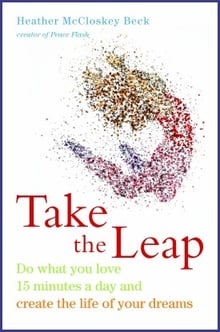 Encouraging others to find their gifts and live their calling is a topic that has been deeply moving for Heather McCloskey Beck, who authored Take the Leap: Do What You Love 15 Minutes a Day and Create the Life of Your Dreams (2013, Conari Press). Synchronistically, decades ago, while walking on a beach in Montauk, Long Island, Beck was inspired and outlined in the sand an idea that came to her about how to create a happy life. Although the water had already swept away her markings by the time she returned from her walk, the idea resonated with her so strongly that when she returned to her campsite, she wrote it down and mailed it off to a friend.
Encouraging others to find their gifts and live their calling is a topic that has been deeply moving for Heather McCloskey Beck, who authored Take the Leap: Do What You Love 15 Minutes a Day and Create the Life of Your Dreams (2013, Conari Press). Synchronistically, decades ago, while walking on a beach in Montauk, Long Island, Beck was inspired and outlined in the sand an idea that came to her about how to create a happy life. Although the water had already swept away her markings by the time she returned from her walk, the idea resonated with her so strongly that when she returned to her campsite, she wrote it down and mailed it off to a friend.
Not long after Take the Leap was written, Beck’s friend found the pages, which had been stored away. Upon seeing them again, Beck was amazed to remember that those pages essentially contained an outline for the book, Take the Leap, which she would publish nearly 40 years later. It was clearly an idea that had been growing for decades.
As people go through life, facets of the soul have ways of emerging and expressing themselves in various ways, Beck explained to me in a recent interview. In retrospect, it is clear to Beck that Take the Leap was part of her life’s work which needed to be expressed—and is something she continues to feel very deeply about. As part of the foundation for her book, Beck created a simple program called “15 Minutes a Day.” Participants make a commitment, for 30 consecutive days, to spend 15 minutes each day doing something that they might enjoy in the quest to open up space in their lives. These 15 committed minutes can help participants tap into new creative avenues that provide insights about purpose and calling. When we allow enough space for spirit to flow, it can become a portal to what is next.
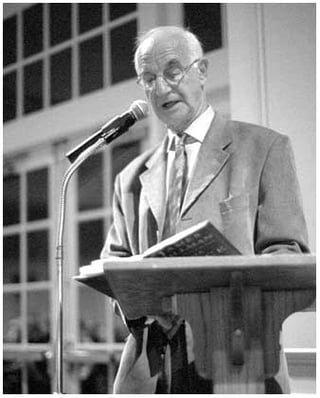 While interviewing Beck (whose vibrant energy and warm laugh are contagious), I’m intrigued by the idea that she essentially had the foundation of her book decades earlier. Archetypal psychologist, James Hillman, wrote about what he calls the “acorn theory” in his book, The Soul's Code. In it, he offers stories about real people who manifested some clue of who they were to become even as very young children.
While interviewing Beck (whose vibrant energy and warm laugh are contagious), I’m intrigued by the idea that she essentially had the foundation of her book decades earlier. Archetypal psychologist, James Hillman, wrote about what he calls the “acorn theory” in his book, The Soul's Code. In it, he offers stories about real people who manifested some clue of who they were to become even as very young children.
Beck, who was introduced to Hillman’s book while pursuing her Ph.D. in Depth Psychology with a Specialization in Somatic Studies at Pacifica, did not have the benefit of a scholarly depth psychological framework when she wrote Take the Leap. At that time, her viewpoint stemmed from a spiritual perspective that she had been utilizing for most of her career. She remembers feeling amazed while sitting in her first day of classes at Pacifica. What she had written in Take the Leap contained much of the philosophy of depth psychology and somatics, yet she had never been informed by the formal academic theories from these two disciplines. Her book spoke of the same topics she was learning at Pacifica; she had just used different terminology. “How did I know these things?” she marveled.
Now well into her second year of studies, depth psychology has already significantly changed Beck’s life. She feels her sense of who she is and of her life’s work have become highly integrated. Her schooling is creating one streamlined path, she notes, where all the strands of her life are informing one another, shored up by the academic rigor of research, structure, and theory. “It's absolutely magnificent!” she asserts.
Of the authors and contributors in the field of depth psychology that Beck has so far discovered in her graduate career, she has been deeply inspired by the work of Jungian analyst, Robert Johnson. Upon learning about the practice of active imagination (which originated with C. G. Jung, and was explored by Johnson in his book, Inner Work), she felt completely at home, she reveals. She realized active imagination is a process that she has been practicing her entire life, without knowing the academic name. In her own personal practice, she utilized a form of automatic writing, sitting down and inviting a conversation with “whoever would show up,” then documenting the conversation.
Johnson’s work on the lived and unlived life was also deeply inspirational to Beck. We each make choices in our lives, she observed, and when we make certain choices, our pathway goes in that direction. The choices people do not make must also be considered, and that is the unlived life that Johnson refers to.
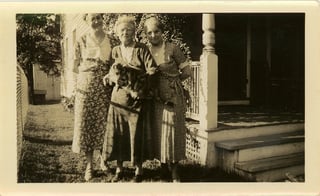 Beck has recently become interested in epigenetics, the study of heritable changes in gene function that do not involve changes in the DNA sequence*. She believes that we are born “fully locked and loaded” with gifts that we ourselves have determined before our birth. However, the moment we are born, our lives are prone to social enculturation from parents, family, communities, religious organizations, governments, schools, etcetera. These enculturations have a way of taking us off our pathway, at times limiting us to the projections of what others want for us, rather than allowing the “acorn” that Hillman referred to, to truly unfold and to express our own unique genius.
Beck has recently become interested in epigenetics, the study of heritable changes in gene function that do not involve changes in the DNA sequence*. She believes that we are born “fully locked and loaded” with gifts that we ourselves have determined before our birth. However, the moment we are born, our lives are prone to social enculturation from parents, family, communities, religious organizations, governments, schools, etcetera. These enculturations have a way of taking us off our pathway, at times limiting us to the projections of what others want for us, rather than allowing the “acorn” that Hillman referred to, to truly unfold and to express our own unique genius.
In listening to Beck’s insights, I am reminded that Jung wrote that nothing has a psychologically stronger influence on people than that of the unlived life of a parent. When we are able to dig into that concept and start becoming aware of its influence on us, it can be profoundly healing; not only for us, but also for future generations because it no longer gets passed on.
Beck strongly agrees with this idea as she points to an experience that she had in her fieldwork in which she believes epigenetics played a role. As a student of Somatic Studies at Pacifica, her fieldwork requires her to pay attention to her embodied experience, thereby allowing her to be informed through a combination of psyche, soma, and spirit—all integrated together. Beck is keenly aware of the extent to which her body informs her about her life experiences when she observes people and responds. In the process of responding, she utilizes her intuition, trusts herself, and goes into the unconscious depths of her psyche. Living life and responding to what it offers is no longer just an intellectual process, Beck notes. Everything comes back to the lived and unlived life, helping us make decisions and choices from a very different perspective than what we are accustomed to doing.
Beck has long integrated some of what she now recognizes to be depth psychological practices into her work with clients. She is currently working on a new book, which is informed through active imagination and uses a style of writing that allows unconscious meaning to surface as archetypes and symbols. A story conceived in this way can unfold as a tale, which, on one level, is very depth psychological.
Those deeper, unconscious meanings can sometimes erupt when we least expect them. These moments offer us opportunities to learn about ourselves, identify limiting beliefs, and break patterns that no longer serve us, which opens us to insights about our true path in life. Beck experienced one such opportunity when, as part of her required summer fieldwork, she presented at an international women’s summit along with 19 other women. A situation arose where some of her own unconscious content surfaced within her psyche. By keeping ethnographic field notes that were somatically informed from her studies at Pacifica, Beck was able to document the situation and how she dealt with it at the time.
Not long after the conference, Beck underwent a knee replacement surgery. During her recovery, she realized that synchronistically, the surgery was deeply informing her of the shadow material that had emerged during the conference. She began to realize she had been keeping certain energetic aspects in her body. As these feelings began to surface, she was able to identify and release them—along with their somatic patterns.
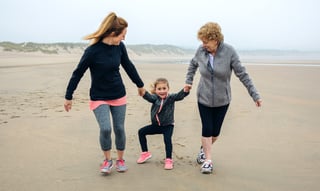 Furthermore, she noticed that she possessed some of the same behaviors, and perhaps even feelings, as her mother and her grandmother. As a result, she began to wonder how this particular theme had been passed down through the generations. She wondered if it was only her story, or if it was part of her mother's and her grandmother's story as well. This event was reinforced by the physical experience of having surgery on her knee. Her mother faced the same situation, she reveals, as did her grandmother. These insights and revelations led Beck to ask questions such as “who am I?” and “what's my purpose?” She also began to wonder how much of her own experience, inclinations, and perspectives were actually her own, as opposed to the aspects of her life that her mother or grandmother or great-grandmother had not lived.
Furthermore, she noticed that she possessed some of the same behaviors, and perhaps even feelings, as her mother and her grandmother. As a result, she began to wonder how this particular theme had been passed down through the generations. She wondered if it was only her story, or if it was part of her mother's and her grandmother's story as well. This event was reinforced by the physical experience of having surgery on her knee. Her mother faced the same situation, she reveals, as did her grandmother. These insights and revelations led Beck to ask questions such as “who am I?” and “what's my purpose?” She also began to wonder how much of her own experience, inclinations, and perspectives were actually her own, as opposed to the aspects of her life that her mother or grandmother or great-grandmother had not lived.
Beck also appreciates the archetypal notion that she experienced an “intervention.” By having the surgery, Beck now has two fully straight legs—a transformation that is both physical and embodied. When the shadow material arose at the women’s summit during her fieldwork, she also experienced an intervention through which she was able to change her habitual energetic response to something that happened, and ended up empowering herself instead. By doing this, she realizes that she also changed the pattern of how her mother and her grandmother had responded to similar situations before her.
Beck remains very interested in the idea of making choices and living a life that we want to live. She continues to contemplate individual and genetic encoding, and ways by which we might turn off and on certain DNA codes, and change the trajectory of our lives in order to align with the gifts that we were born with. For me, I think that we need more of this kind of inquiry in the world. In an era where there is so much soul loss in our culture, which leaves many people disoriented, examining the patterns that are running rampant in our lives, sometimes through the generations, can profoundly empower us to transform and to take greater hold of our own gifts and purpose in the process.
* Read more about the field of epigenetics at wikipedia.org
Listen to the full audio interview with Heather Beck here (approx. 33 mins)
Learn more about the M.A./Ph.D. Program in Depth Psychology with Specialization in Somatic Studies at Pacifica
Learn more about Heather Beck via her online identities:
- Website: http://heathermccloskeybeck.com
- Peace Flash page on Facebook: https://www.facebook.com/PeaceFlash/
- Author Page on Facebook– Heather McCloskey Beck: https://www.facebook.com/HeatherMcCloskeyBeckAuthor/
- “Finding Your Way Back to You” Group on Facebook: https://www.facebook.com/groups/FindingYourWayBackToYou/
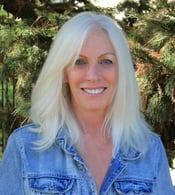 Heather McCloskey Beck is an inspirational author, speaker, musician, social activist, and founder of the global peace movement, Peace Flash®. Dedicated to creating Dynamic Peace within our world, Heather is a columnist for The Huffington Post and frequently speaks to audiences across the United States and Canada. With a growing following on her Facebook pages that has surpassed one million fans, Beck offers virtual and on-site workshops, online courses, and has a private counseling and Intuitive Metamorphic Healing® practice. Heather is deeply dedicated to working with women around the world, helping them to create safe, meaningful, and inspired lives. Her book, Take the Leap teaches us how to create a life we truly love, a life that is creatively inspired and aligned with our own unique Calling. Currently, Heather is studying for her Ph.D. in Depth Psychology with a Somatics Specialization at Pacifica Graduate Institute.
Heather McCloskey Beck is an inspirational author, speaker, musician, social activist, and founder of the global peace movement, Peace Flash®. Dedicated to creating Dynamic Peace within our world, Heather is a columnist for The Huffington Post and frequently speaks to audiences across the United States and Canada. With a growing following on her Facebook pages that has surpassed one million fans, Beck offers virtual and on-site workshops, online courses, and has a private counseling and Intuitive Metamorphic Healing® practice. Heather is deeply dedicated to working with women around the world, helping them to create safe, meaningful, and inspired lives. Her book, Take the Leap teaches us how to create a life we truly love, a life that is creatively inspired and aligned with our own unique Calling. Currently, Heather is studying for her Ph.D. in Depth Psychology with a Somatics Specialization at Pacifica Graduate Institute.
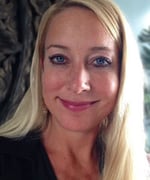
Bonnie Bright, Ph.D., earned her doctorate in Depth Psychology at Pacifica Graduate Institute. She is the founder of Depth Psychology Alliance, a free online community for everyone interested in depth psychologies, and of DepthList.com, a free-to-search database of Jungian and depth psychology-oriented practitioners. She is also the creator and executive editor of Depth Insights, a semi-annual scholarly journal, and regularly produces audio and video interviews on depth psychological topics. Bright is especially interested in ecopsychology, dream work, and divination, and has completed 2-year certifications in Archetypal Pattern Analysis via the Assisi Institute and in Indigenous African Spiritual Technologies with West African elder Malidoma Somé. She has also trained extensively in Holotropic Breathwork™ and the Enneagram.



